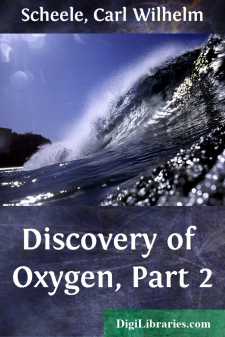Categories
- Antiques & Collectibles 13
- Architecture 36
- Art 48
- Bibles 22
- Biography & Autobiography 813
- Body, Mind & Spirit 138
- Business & Economics 28
- Children's Books 12
- Children's Fiction 9
- Computers 4
- Cooking 94
- Crafts & Hobbies 4
- Drama 346
- Education 46
- Family & Relationships 57
- Fiction 11821
- Games 19
- Gardening 17
- Health & Fitness 34
- History 1377
- House & Home 1
- Humor 147
- Juvenile Fiction 1873
- Juvenile Nonfiction 202
- Language Arts & Disciplines 88
- Law 16
- Literary Collections 686
- Literary Criticism 179
- Mathematics 13
- Medical 41
- Music 40
- Nature 179
- Non-Classifiable 1768
- Performing Arts 7
- Periodicals 1453
- Philosophy 64
- Photography 2
- Poetry 896
- Political Science 203
- Psychology 42
- Reference 154
- Religion 505
- Science 126
- Self-Help 81
- Social Science 81
- Sports & Recreation 34
- Study Aids 3
- Technology & Engineering 59
- Transportation 23
- Travel 463
- True Crime 29
Discovery of Oxygen, Part 2
Categories:
Description:
Excerpt
CHEMICAL TREATISE ON AIR AND FIRE.
It is the object and chief business of chemistry to skilfully separate substances into their constituents, to discover their properties, and to compound them in different ways.
How difficult it is, however, to carry out such operations with the greatest accuracy, can only be unknown to one who either has never undertaken this occupation, or at least has not done so with sufficient attention.
Hitherto chemical investigators are not agreed as to how many elements or fundamental materials compose all substances. In fact this is one of the most difficult problems; some indeed hold that there remains no further hope of searching out the elements of substances. Poor comfort for those who feel their greatest pleasure in the investigation of natural things! Far is he mistaken, who endeavours to confine chemistry, this noble science, within such narrow bounds! Others believe that earth and phlogiston are the things from which all material nature has derived its origin. The majority seem completely attached to the peripatetic elements.
I must admit that I have bestowed no little trouble upon this matter in order to obtain a clear conception of it. One may reasonably be amazed at the numerous ideas and conjectures which authors have recorded on the subject, especially when they give a decision respecting the fiery phenomenon; and this very matter was of the greatest importance to me. I perceived the necessity of a knowledge of fire, because without this it is not possible to make any experiment; and without fire and heat it is not possible to make use of the action of any solvent. I began accordingly to put aside all explanations of fire; I undertook a multitude of experiments in order to fathom this beautiful phenomenon as fully as possible. I soon found, however, that one could not form any true judgment regarding the phenomena which fire presents, without a knowledge of the air. I saw, after carrying out a series of experiments, that air really enters into the mixture of fire, and with it forms a constituent of flame and of sparks. I learned accordingly that a treatise like this, on fire, could not be drawn up with proper completeness without taking the air also into consideration.
Carl Wilhelm Scheele's Chemische Abhandlung von der Luft und dem Feuer. Upsala and Leipzig, 1777.
Air is that fluid invisible substance which we continually breathe, which surrounds the whole surface of the earth, is very elastic, and possesses weight. It is always filled with an astonishing quantity of all kinds of exhalations, which are so finely subdivided in it that they are scarcely visible even in the sun's rays. Water vapours always have the preponderance amongst these foreign particles. The air, however, is also mixed with another elastic substance resembling air, which differs from it in numerous properties, and is, with good reason, called aerial acid by Professor Bergman. It owes its presence to organised bodies, destroyed by putrefaction or combustion....


